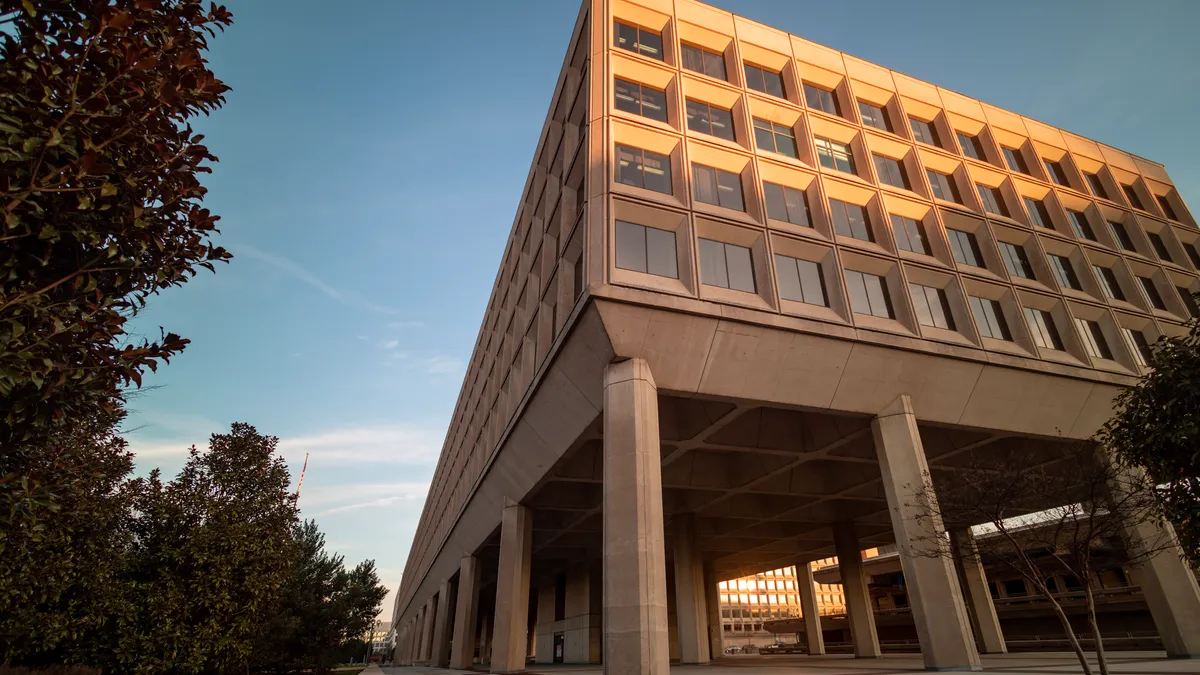Dive Brief:
- The Department of Energy on Monday announced up to $6 billion in funding for 33 projects across 20 states focused on decarbonizing the industrial sector.
- The funded projects are in eight historically high carbon-emitting industries — iron and steel, aluminum and metals, concrete and cement, chemicals and refining, food and beverage production, glass, process heat and paper and pulp.
- The money, which comes from the Inflation Reduction Act and the Bipartisan Infrastructure Law, aims to accelerate domestic industrial decarbonization technologies like clean fuels and recycled metals and create clean energy jobs, the release stated.
Dive Insight:
The department lauded the funding as the “largest investment in industrial decarbonization in American history.”
“These investments will slash emissions from these difficult-to-decarbonize sectors and ensure American businesses and American workers remain at the forefront of the global economy,” Secretary of Energy Jennifer Granholm said in a statement.
Direct greenhouse gas emissions from the industrial sector accounted for 23% of total U.S. greenhouse gas emissions as of 2021, making it the third largest contributor to U.S. greenhouse gas emissions, according to the Environmental Protection Agency.
Together the projects are expected to reduce over 14 million metric tons of CO2 emissions annually, an amount equivalent to the annual emissions of 3 million gasoline-powered cars.
The top five highest funding recipients announced were Cleveland-Cliffs, SSAB, Century Aluminum, National Cement Company of California and Heidelberg Materials North America.
Mining company Cleveland-Cliffs will receive up to $575 million for a project in Middletown, Ohio. The facility will implement hydrogen-based ironmaking technology to eventually replace one of Cleveland-Cliffs’ seven operating blast furnaces.
Century Aluminum plans to build the first new U.S. green aluminum smelter in 45 years, backed by up to $500 million from the department. The project will create more than 1,000 full-time jobs represented by the United Steelworkers and over 5,500 construction jobs at its sites within Ohio and Mississippi river basins.
Other notable grants included $331.9 million for Exxon Mobil’s Texas plant carbon reduction project and $170.9 million for Kraft Heinz to decarbonize food and beverage production of items like ice cream and ketchup.
Nearly 80% of the projects are located in a disadvantaged community that are impacted by underinvestment and overburdened by pollution. Each project must implement a community benefits plan, including working with community and labor groups to advance diversity, equity and inclusion, accessibility and more.
Projects awards are not final and can be changed during future negotiations, the DOE stated.
















